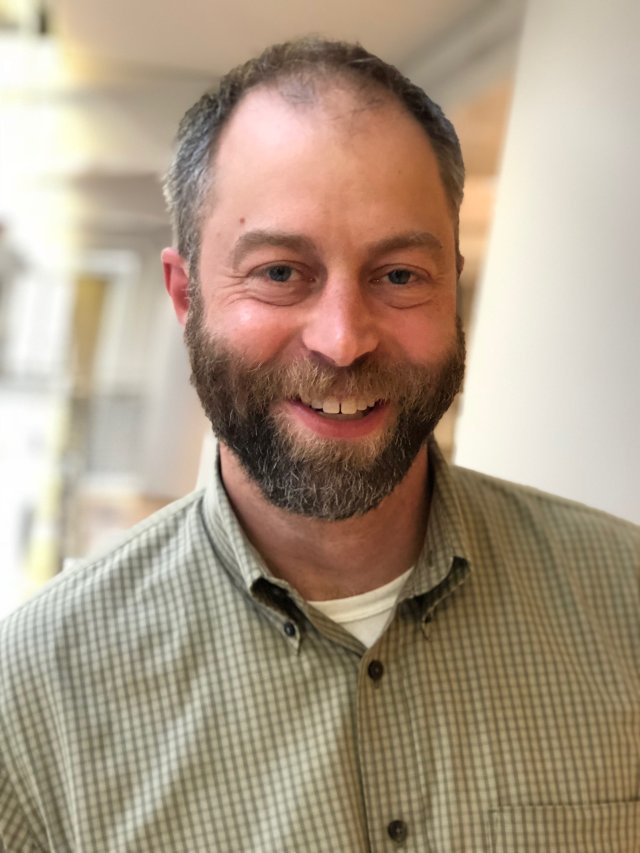Meet EPA Researcher Stephen LeDuc Ph.D.

EPA researcher Steve LeDuc focuses on how climate change and human activities affect environmental quality, especially in forested, agricultural, and mining landscapes. Dr. LeDuc is primarily working on finalizing the Forests Chapter for the 5th National Climate Assessment, where the impact of climate change on US forests is described for policy makers and the public. In this assessment, it’s shown that climate change is profoundly impacting forests through a myriad of ways including increased temperatures, shifting precipitation patterns, and greater wildfire activity. Secondly, within EPA, his team conducts a forest climate assessment, synthesizing information on how climate change will affect EPA’s mission areas (e.g., clean air, clean water) by altering forests. For example, forests supply approximately 50% of surface drinking water in the US, and so, how climate change will impact water supplies from forests is incredibly important for EPA managers and communities. When not working, he loves to spend time in the outdoors with his family, and if not doing that, reading history or fiction, and watching sports (but not all at the same time).
Tell us about your background.
I have a dual Ph.D. in forestry and ecology from Michigan State University, a master’s in geography from Penn State, and a bachelor’s in natural resources from the University of Michigan. So, I’m a product of the Big Ten, making for some confusing football allegiances at times.
When did you first know you wanted to work in environmental science?
My dad took us on epic van trips out West growing up, visiting many national parks. When we did not go out west, we would visit my extended family in West Virginia, where we would play in the woods for hours. I think it was these early experiences that sparked my interest in the outdoors and eventually environmental science.
What do you like most about your job?
I’m incredibly honored to work for EPA and the US public. I get to work on some of the most relevant science questions of the day, and I’m never bored doing it.
How does your science matter?
EPA science matters tremendously. When I first came to the Agency, we were asked to report on how mountain top mining impacts aquatic ecosystems. That report contributed in part to the Administrator’s decision to reject the permit for the Spruce No. 1 Surface Mine, the largest proposed strip mine at the time in Appalachia. It was then that I realized the incredible importance, and responsibility, of EPA science. There have been many such instances in my career.
If you weren’t a scientist, what would you be doing?
Probably a park ranger. I love the idea of being a steward for a particular place, getting to know an area of land and helping people appreciate it too. If not that, then a play-by-play baseball broadcaster for radio (not TV).
What advice would you give a student interested in a career in science?
My advice would be two-fold. One, I always had trouble choosing a career path since I was interested in absolutely everything. For example, I was always interested in history in addition to science. My advice would be to eventually pick a career door to walk through and don’t look back, but you can always supplement with other things beyond science. Indeed, focusing on science all the time can be problematic. It actually makes for a better, more well-rounded scientist to know a little something about many other subjects. Second, don’t worry so much about yourself. Focus outwardly instead, serving the larger community with your science, and the rest will take care of itself. Not only will you do better work, but it is incredibly freeing mentally.
If you can have any superpower, what would you choose?
Teleportation. The downside of pursuing a career in science is that it often has taken me away from my family and friends. I’d like to spend time with them whenever I wanted to.
What do you think the coolest scientific discovery was and why?
Germ theory and antibiotics. I would not even be here answering these questions without those two discoveries.
If you could have dinner with any scientist, past or present, who would you choose and what would you talk about?
Does it have to be a scientist? I’ve always wanted to meet Abraham Lincoln. If a scientist, then Aldo Leopold. He was an amazing observer of nature, finding wonder everywhere by just slowing down and looking.
What do you think is our biggest scientific challenge in the next 20/50/100 years?
Climate change. Regarding the larger problem, it is actually more a societal challenge than a scientific one. We know what needs to be done and have for quite some time, yet the challenge is taking collective action to preserve the common good. But, given the reality of climate change, we need to better understand the problems our most vulnerable communities and ecosystems are facing now and in the future and how to respond. That is where EPA science can help.
Editor's Note: The opinions expressed herein are those of the researcher alone. EPA does not endorse the opinions or positions expressed.
